The telephone started ringing. When Fernando Gray, the mayor of Esteban Echeverría who was about to resume the chairmanship of the Buenos Aires provincial branch of the Justicialist Party (PJ), took the call, he was surprised to find Interior Minister Eduardo 'Wado' de Pedro on the other end of line. One of the toughest years ever, from every point of view thanks to the Covid-19 pandemic, was drawing to a close but the ministerial message was about to shake up things for the Greater Buenos Aires mayor all over again. “Why not bring ahead the PJ elections so Máximo can take over?” De Pedro asked him, before insisting: “If you resign with that in mind and ask the Council, we can do it now, instead of waiting for the end of 2021.”
Gray turned him down but he knew that a sword of Damocles now hung over his head.
That telephone call was the start of the most ambitious political project yet by the La Cámpora leader. The first try may not have worked but this is only the beginning of 'Plan Máximo,' a masterplan that seeks to empower the younger Kirchner in the country’s most populous territory in line with his father Néstor Kirchner's famous stock phrase: “Buenos Aires Province is the mother of all battles.”
The aim has not been spelled out explicitly, but is already starting to be evident. Bending the will of the mayoral barons of Greater Buenos Aires brings the final project closer, the one both he and his mother, Cristina Fernández de Kirchner, dream of: Máximo President, in 2023 or in 2027.
The Vice-President’s son has recently been preparing himself for that, forging important links with Peronist leaders in Congress. He has also done the same with the opposition. Máximo has also started to people the districts and such amply funded organisms as the ANSES social security administration and the PAMI healthcare scheme for the retired with La Cámpora militants. The plan is to build power beyond Cristina’s shadow and transform himself into a real leader. But for now, Máximo is far from being independent.
The country’s situation will determine the best moment to run for the seat which both his parents have already occupied. But when it arrives, he must be prepared.
Towards that end, concentrating on the challenge of his provincial launch, Kirchner opted to stay in town over Christmas and not go on holiday, at least not for now. Unlike Cristina, who headed south for Christmas and returned to the capital for the final Senate session of 2020 and the New Year, before finally returning to her place in the world.
Little remains of Máximo’s former image, of “the fat slob who spends all his time playing video games,” a picture that so amused the opposition. Then, he had still not found his political calling and meandered between university courses and his parents’ real-estate businesses. Everything, even his physical appearance, has changed. Kirchner currently follows a strict diet in which he counts every carbohydrate consumed, working out to keep fit physically. Not being overweight is an aesthetic decision but it also has its health motives - following a 2012 operation for a knee infection, keeping his weight down was recommended by doctors.
For now, Máximo monitors the advancing of his plan from a borrowed flat in an old three-storey building in the neighbourhood of Monserrat, just seven blocks away from Congress. Even at the risk of creating new problems for Peronism, the deputy for Buenos Aires Province advances. He’s prepared to tug the rope to the limit, even at the risk of breaking up the ruling Frente de Todos coalition. He is confident that, sooner rather than later, the fractious mayors will end up yielding.
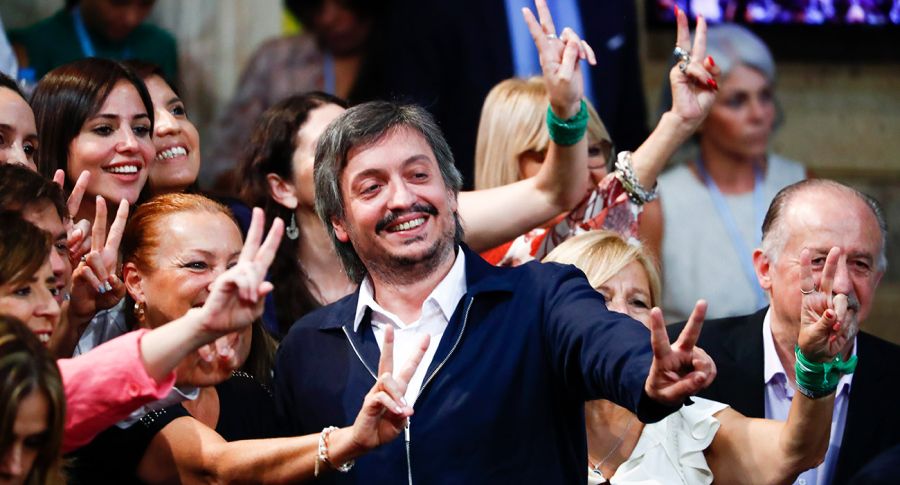
Presidential dream
Máximo’s provincial PJ venture is not the first battle between La Cámpora and the region’s mayors. Indeed, the second half of 2020 saw a fierce clash when President Alberto Fernández gave the green light to a group of mayors who were trying to repeal a law imposed by the previous Buenos Aires Province Governor María Eugenia Vidal barring indefinite re-election. La Cámpora blocked this bid since overturning the law would imply its leaders could not compete for the mayoral positions now held by the barons. In order to avoid this short circuit from blowing the government’s fuses, the mayors withdrew their claim, which was seen by the youthful Kirchnerite grouping as their first great victory of the year.
The second clash began as 2020 ended, with 'Wado' de Pedro’s call to Gray. It still remains unresolved – over and above the party infighting and the opinions voiced by the mayors in strictly off-the-record chats, they need to watch their territory. Each one has to play his own chess game against Máximo’s group – if they rebel against the interests of La Cámpora, the youth movement could assemble a rival list which would weaken the power of each mayor in their territory. Just snatching a couple of municipal councillors from the local machine would already cause serious problems.
So how do they avenge themselves for the verticalist decisions which harm them? One mayor confessed to NOTICIAS: “The strategy is always the same. We stay mum in order to survive and end up splitting ballots against the government.”
For now a truce has been promised by both sides in this dispute. Nothing on the record in order not to make the party implode. But still, the dirty tricks and the campaign operations fly thick and fast from one side to the other.
Something has changed in the Kirchner family’s consideration for the PJ. They were never orthodox militants and Cristina even famously insulted them in one memorable wire-tapped telephone exchange with Senator Oscar Parrilli when their interests collided. But the harm done to Fernández de Kirchner by Florencio Randazzo in the 2017 midterms remains fresh in the memory – the former interior minister, who served two terms under CFK, ran on the PJ ticket and stripped her of five vital percentage points so that she suffered defeat against the then-Mauricio Macri government. It was a lesson for Máximo.
By the time the lawmaker’s plan comes to fruition, he will already have turned the state into a La Cámpora minefield. Kirchnerite youths have been overrunning the positions which previously during the Néstor Kirchner presidency were reserved for traditional Peronism, including key posts in the current national government. “The De Vidos have been replaced by the De Pedros,” is the way one Justicialist summed it up.
For the vice-president’s son, seizing the reins of the Buenos Aires provincial PJ is more business than pleasure. He has never lived in the region and nor is he the most Peronist of Peronists. In fact, on various occasions he has been the maverick among the comrades – for example, on the most recent anniversary of the assassination of CGT secretary-general José Ignacio Rucci, a Juan Domingo loyalist, when he decided not to pay him tribute.
Yet Máximo understands that this gambit is necessary and he is resolved to do it, whatever the cost.
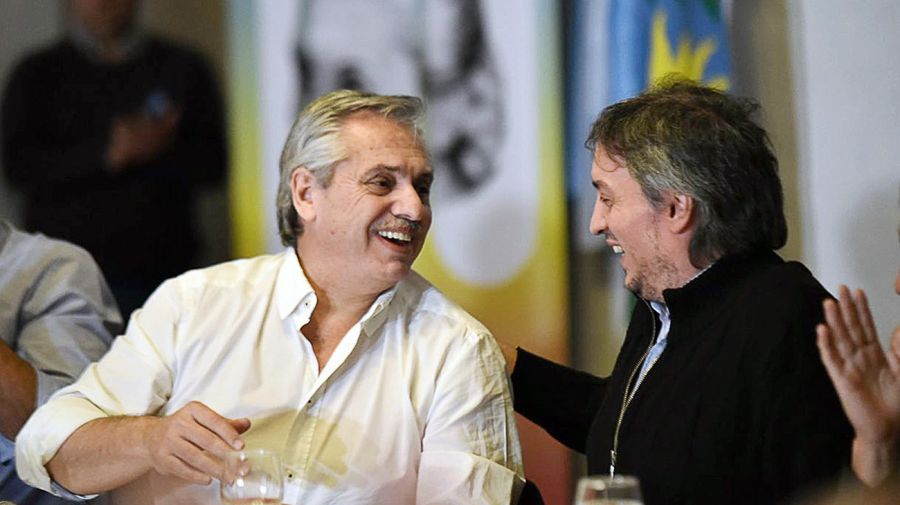
Entourage
Looking beyond the veneration of his surname by La Cámpora militants, Máximo has sought new alliances to open up politically. He has to stop fishing in his own pond if he wants to transform himself into a true candidate for the Casa Rosada. That led him to forging a strong relationship with Sergio Massa, the Speaker in the Chamber of Deputies and an erstwhile critic and rival of Kirchnerismo, who is currently an ally. That bond has become a key point in maintaining the unity of Frente de Todos.
Indeed, so particular is that relationship that in the corridors of state-run Canal 7 (better known as TV Pública), where the vice-president’s son always has the last word, there is a joke which is already redundant: “Máximo is working so that Sergio may shine,” referring to orders given to that channel to cover every political event where Massa is the protagonist.
But the relationship with the ex-Tigre mayor is not the most surprising. With a sudden proximity to Máximo now appears a maverick mayor. Martín Insaurralde, who was once ferociously criticised by the Frente Para La Victoria for playing his own game, is now the Kirchnerite pivot within the Province.
“He is suddenly more Kirchnerite than the Kirchnerites,” one fellow-mayor whispers under his breath.
Insaurralde’s former spokesman Federico Otermin, now the provincial assembly speaker, is now preparing Máximo’s boldest political move, even gaining presidential adhesion. ccording to the mayors resisting the Kirchnerite launch in the Province, it was Insaurralde who convinced President Alberto Fernández that there was a consensus behind Cristina’s son walking off with the Peronist party chairmanship, something which, they insist, is not the case. At least not for now.
“We must all make an effort and stick together. Máximo, whom I love very much, is prepared. A great leader with capacity for dialogue. He has all the virtues to occupy a post of that nature,” declared the president in a Radio 10 interview, paving the way yet further.
The presidential reaction to his veep’s son has also raised Peronist eyebrows. At no point did he attempt to assert himself, even responding when asked what he thought about the idea of Máximo reaching the presidency: “I wish he would. He’s a marvellous boy.” Alberto has backed away from any power dispute with La Cámpora. When he does want to take them on, it could be too late.
To complete the plan carrying Máximo to the helm of the Buenos Aires provincial branch of Peronism, there are still some questions to be settled and still some mayoral arms to twist. “If they convoke a party congress today, it would end in scandal. That is why everything is on standby until nerves calm down,” Peronist sources assure.
According to Máximo’s entourage, they continue to gather support – apart from Alberto, they have a score of allied mayors. They are convinced that they will be closing ranks soon.
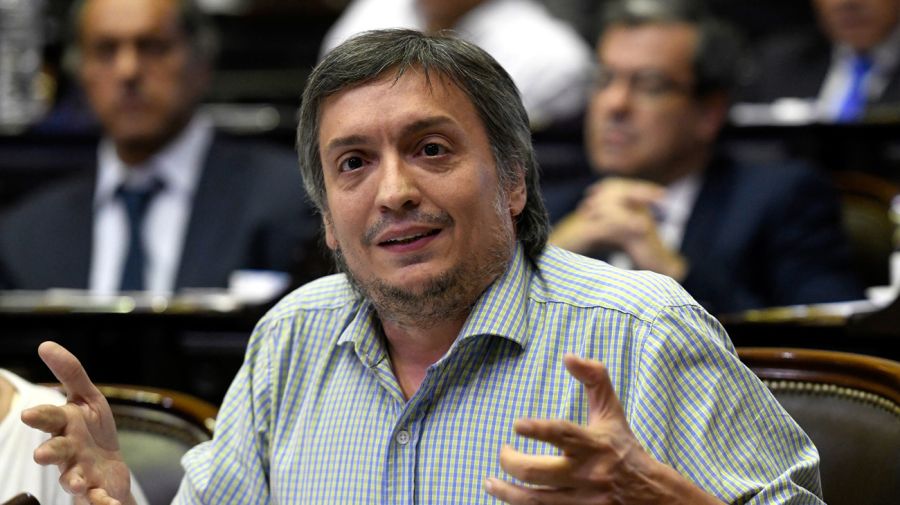
Dialogue
Máximo’s leadership style has little in common with his mother’s. While Cristina is almost inaccessible for any other politicians, expressing herself exclusively via her social networks, her son has been able to construct a relationship with many leaders, including the opposition.
For example, he has been able to reach consensus with Cristian Ritondo, the lower house PRO caucus chief, over various bills. Their relationship, above all, seems to be based on mutual teasing around the results of football matches between Racing and Independiente. Federico Salvai, María Eugenia Vidal’s right-hand man, is another Juntos por el Cambio leader with whom Kirchner chats fluidly and lays bets.
But what really marked Máximo out was the way in which outspoken opposition leader Elisa Carrió received him at Congress. It went much better than he could have expected: 'Lilita' welcomed him on their first meeting with a flattering: “How skinny you are. It suits you very well.” Those present could not believe their ears, until Carrió, then a deputy explained: “He’s not guilty of the sins of his fathers.”
That was a soothing balm for the brand-new lawmaker. Now, in the 2021 midterms campaign, the duo will cross swords in the district which will define the election.
Of course, Máximo does not get on well with all the opposition and he is an easy target for their attacks. The latest protagonist was ex-security minister Patricia Bullrich, who responded to a cheap shot from the La Cámpora leader inviting Juntos por el Cambio to “reflect” on why they lost in 2019. “Yes, Máximo, you beat us. At the cost of lying to a country. To the pensioners, the farmers, the workers and shopkeepers,” she tweeted. “Don’t let that distract you because when people’s patience runs out, they will teach you a lesson. Even though you place the judge in charge of the ballot-boxes.”
In the last congressional session of the year, when the government managed to secure passage of its bill to update pensions, Máximo also clashed with Mario Negri, a Radical leader from Córdoba. When Negri showed him stones, alluding to the attack on Congress in 2017, when Juntos por el Cambio approved their own mechanism for updating pensions, Máximo hit back by exhibiting rubber bullets: “That’s what you fired at the people, who are the true resistance. You’re not the resistance, you’re power. You might have lost an election but you’re the power in Argentina,” he argued with typical Kirchnerite rhetoric.
In the opposition they are already beginning to see La Cámpora as the real rivals in 2023. The former Vidal official Joaquín de la Torre, who is already working on assembling a coalition to strike the first blow against the government, defines it thus: “The option for 2021 and 2023 is La Cámpora or an opposition front.”
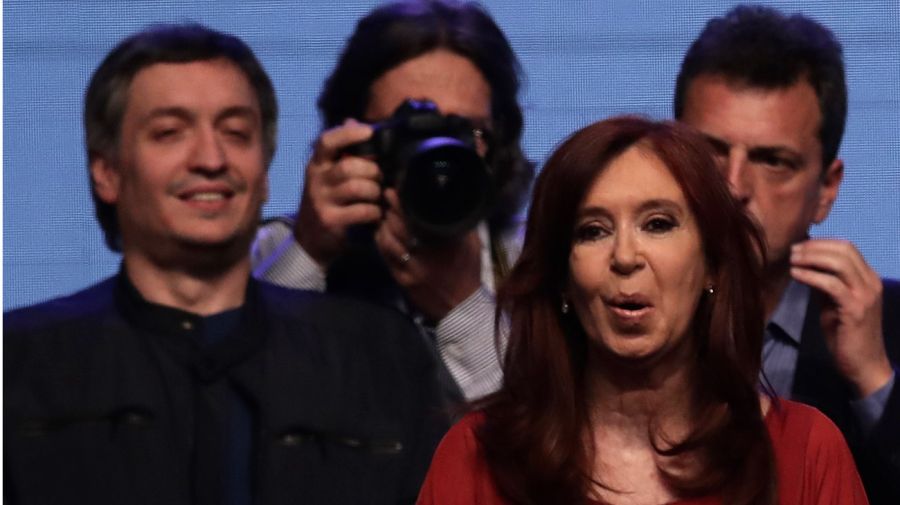
Justice
Out of the corner of their eyes, the members of the Kirchner family are always looking at the Comodoro Py courthouse. In their 12 months in power, after four years out of it, they received good news and bad news. The good news is that the cases in which they are being investigated haven’t advanced too much, the bad is that they remain open with their fate depending on the will of a couple of judges. Another sword of Damocles.
Cristina faces multiple trials, although the only trial set for this year is the case of public works, where she is being investigated for presumed corruption together with the tycoon Lázaro Báez, the former owner of Austral Construcciones and a close Kirchner family ally.
Meanwhile Máximo is implicated in a connected case, known as ‘Hotesur-Los Sauces,’ the hotel chain which, according to the investigations of prosecutors, recycled money from the public works overpricing paid out to Báez and Cristóbal López. Had it not been for the coronavirus pandemic, which shut down courthouses and slowed down procedures, the trial would have begun towards the end of this new year. That horizon now recedes but the case is still worrying. The vice-president’s son has parliamentary immunity but his sister Florencia does not. What would happen if there is a conviction? That question also makes it fundamental to win the upcoming elections. Argentina’s Judiciary can sniff out political weakness.
The deputy continues searching for his own narrative. As a Kirchner, Máximo’s surname makes him a natural presidential candidate. But that factor which opens up so many doors also complicates him – it gives him a level of absolute public recognition which any leader would envy, but with too low a ceiling, based on the negative image of his mother.
According to a December study by the Synopsis consultancy firm, out of 10 leaders surveyed, Máximo’s image only surpassed Massa and José Luis Espert. The Frente de Todos caucus chief has a positive image of 22.2 percent with 63.7 percent negative. Other pollsters give similar results. An uphill climb which will require titanic work.
For the time being he is not doing too much to change that. The government whip has no social networks in his own name, nor does he usually grant interviews, not even to people he knows. His public communication is almost non-existent and he is growing increasingly inaccessible.
“That’s his style. It would not suit us either if he went swanning around in the media,” says a source within his entourage. Secondary leaders protest that he no longer receives everybody in his office – they are filtered by fellow deputy Leopoldo Moreau beforehand.
The discussion now lies elsewhere: the final objective for 2021 is who will have the pencil to draw up the lists of midterm candidates. His mother will command everything at national level.
Will Máximo Kirchner take charge of the country’s most populous province? That’s the desire. And judging from what’s happening, it seems that his wish will be a command.
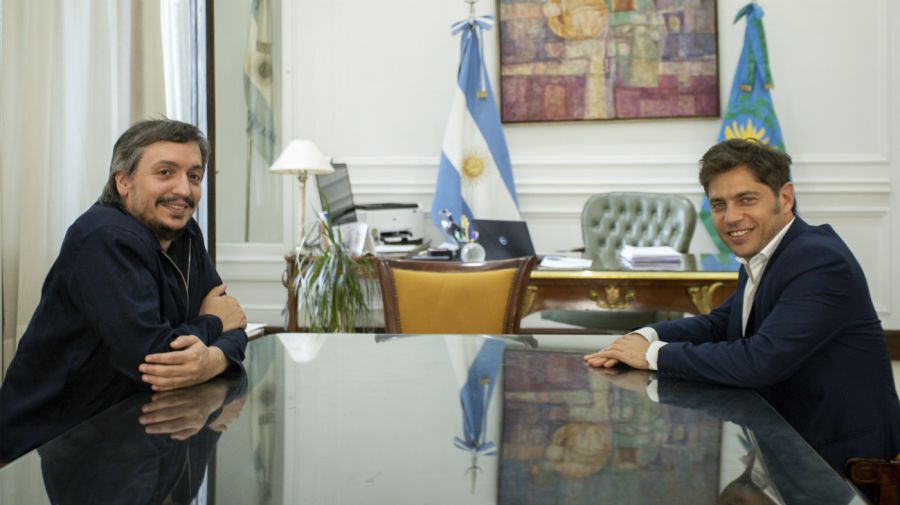
Infighting with the provincial ‘barons’
Members of Máximo Kirchner’s entourage say it was the Greater Buenos Aires mayors who came begging, asking the Frente de Todos caucus chief to move into Buenos Aires Province and take charge of the next elections. Nevertheless, nobody in the Greater Buenos Aires districts corroborates this strange version of events – the arrival of the La Cámpora leader in the country’s most populous territory would bring more headaches than solutions.
The current helm of the Buenos Aires provincial branch of the PJ – Mayors Gustavo Menéndez (Merlo) and Fernando Gray (Esteban Echeverría) – still has a year left to go but the vice-president’s son has now shown up to speed things up. Now they will have to measure who has more backing for the top spot and here Máximo has a huge lead.
While everybody waits in strict silence for the waters to calm down sufficiently to call a party congress and decide the PJ’s fate, indirect messages are being sent. The least subtle came from Gray, who fired off a New Year missile, disguised as a message “to his neighbours”: “It’s time for consensus, not impositions,” he said in a clear allusion to La Cámpora. And then he showed off a “forestation project” under the hashtag #YoMePlanto (“I’m Digging In”). Telephone call for Máximo.
The disobedience of these maverick mayors will carry a price – the Kirchnerite grouping has prepared a draft list of candidates for the districts which did not spontaneously adhere to Plan Máximo.
On this list headed by Gray and Menéndez, they are also gunning for Hurlingham (Juan Zabaleta), San Martín (Gabriel Katopodis), Ituzaingó (Alberto Descalzo), José C. Paz (Mario Ishii), Almirante Brown (Mariano Cascallares) and Ezeiza (Alejandro Granados), among others. Many of these were blacklisted due to their good relationship with the region’s previous governor, María Eugenia Vidal of Juntos por el Cambio.
The situation facing Lomas de Zamora Mayor Martín Insaurralde is paradoxical. At one point he dreamed of becoming governor via a league of mayors. But he swivelled the wheel in time and now he is Máximo’s main operator in the province, pushing for the deputy to chair the provincial branch.
“Hasn’t anybody ever said no to Máximo? I’m going to be the first,” Gray was heard to say at a local meeting after learning of the plans of the Frente de Todos caucus chief. But now he runs the risk of being out on his own – after all, each mayor ends up looking after his own turf.
A borrowed home in Monserrat
Until now Máximo Kirchner’s home address has been a mystery. Since he separated from Rocío García, the mother of his two children, and moved definitely to Buenos Aires, his place of residence was unknown. Noticias magazine has tracked him down and can affirm that he lives in a flat on San José street in the neighbourhood of Monserrat.
This flat is not rented but borrowed. It belongs to Magistrates Councillor Gerónimo Ustarroz, who bought it in 2006. Ustarroz, whose parents are also the foster-parents of Interior Minister Eduardo “Wado” de Pedro, with whom he grew up, negotiates everything related to the appointment and removal of judges on behalf of the government.
This is not the only example of a high-profile Argentine politician living in a flat borrowed from a friend. Ex-president Mauricio Macri borrowed a flat from former AFI intelligence chief Gustavo Arribas while Enrique “Pepe” Albistur gave Alberto Fernández the run of a property he owned in Puerto Madero.















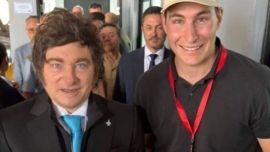













Comments